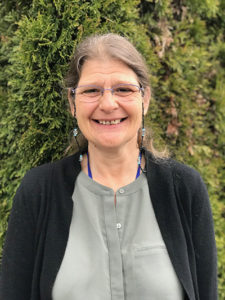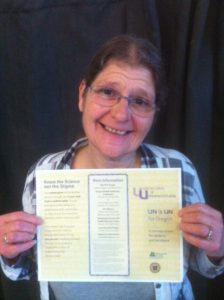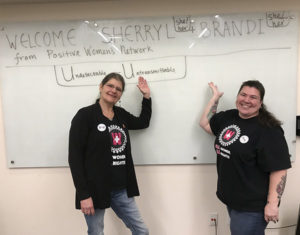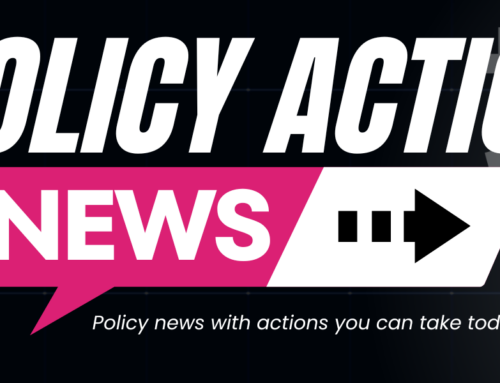 January 29, 2020: Imagine being a woman living with HIV, truly apprehensive or extremely cautious when it comes to sexual intimacy. After all, you’ve been hearing for years that you have to use condoms every single time. Imagine the spark that goes off after reading an article in a magazine stating scientifically you can be intimate as a person living with HIV without the worry of transmitting HIV to your sexual partner. What are your next thoughts? What are your next actions?
January 29, 2020: Imagine being a woman living with HIV, truly apprehensive or extremely cautious when it comes to sexual intimacy. After all, you’ve been hearing for years that you have to use condoms every single time. Imagine the spark that goes off after reading an article in a magazine stating scientifically you can be intimate as a person living with HIV without the worry of transmitting HIV to your sexual partner. What are your next thoughts? What are your next actions? Until she read the article in POZ magazine, no one had ever informed Sherryl Lamm, who recently graduated from PWN’s third class of policy fellows, that she did not have to live in fear of transmitting HIV to her sexual partner since she had been undetectable and remained adherent to her medications–even though she’d been active in her own health care ever since diagnosis. It was the first time she had been exposed to the U=U campaign. We interviewed her about her PWN Policy Fellowship practicum: a factsheet on U=U, plus resources, that she has been getting into clinics and AIDS service organizations in her home state of Oregon.
Q. What does the U=U campaign mean to you as a woman living with HIV?
A. What it means to me as a woman is multifaceted. It is a campaign of hope; it is empowering and destigmatizing; it gives the incentive to be adherent. It means that as long as I am virally suppressed, I cannot sexually transmit HIV to my partner. I can be intimate without being apprehensive. I don’t have to worry if a condom breaks. I don’t have to use a condom at all, if my partner and I choose not to use one. I can be sexually active. I no longer have to fear being in a relationship, and no one has a reason to be afraid of me. We are all sexual beings and having a healthy sex life is good for you, both mentally and physically. I no longer have to deny my sexual health due to fear. I could have a family, if I chose to, without fear of passing it to my partner or the unborn child.
 Q. How did you decide to make a factsheet on the U=U campaign for your practicum for the policy fellowship?
Q. How did you decide to make a factsheet on the U=U campaign for your practicum for the policy fellowship?A. I decided to make the factsheet on the U=U campaign for my practicum because of the lack of information and the way I found out about U=U. I read it in a POZ magazine.The information made me feel so relieved that I burst into tears; I thought, this is the best news ever! We should be screaming it from the rooftops, leaflets, mailings, fact sheets, billboards, and commercials. The campaign was already a year old and I did not hear about it from my health care provider, my counselor, or from another person with HIV, and I didn’t see any material about it in any health care facility that I had been to. Only approximately 20% of the people that I spoke to about U=U were aware of it and many did not know the facts or what it meant. To me, the lack of U=U information to the people that need it, is a crime! We should be talking about this very important, liberating information and making the information more readily available to the people that needed it.
So I set out to remedy this dilemma.The factsheet was a needed piece of information for those living with HIV and those who love us. It was a way to get the message to those who need it. It also was in alignment with Positive Women’s Network objectives and the Policy Fellowship practicum was the perfect opportunity to do something about it.
Q. Why was it important to cater your practicum to Oregon?
A. It was important to me to cater the practicum to Oregon to include practical local information: how to navigate health care options, testing facilities, access to medications and resources to address other barriers such as housing insecurity. It also gave me the ability to be integrated into the local HIV community, which was important to me.

A. In Oregon, HIV services and community are severely lacking outside of the Portland metro area, as that is where about half of the people living with HIV in Oregon reside. I live 50+ miles outside of that area and many live even further away from these services. So getting the information to the smaller more rural communities has been a challenge. With support from PWN Oregon State Lead, Brandi Velasquez, and the Multomah County Health Department, we’ve gotten Oregon Health Authority and the Oregon Ryan White Council to sign on in support of the U=U campaign.
Q. What impact do you hope to have in your Oregon community by spearheading the U=U conversation?
A. I hope to destigmatize HIV through the U=U message. To give hope to people living with HIV that they are not defined by their disease; to increase testing by reducing or eliminating the fear that people feel about HIV; to help people navigate through barriers they may face to seek testing or treatment; to educate more people about U=U; to get more physicians/health care providers talking to their patients about U=U; to give incentives to start and/or stay on ART medications and to get and stay virally suppressed; and to that end, help to end the epidemic.



I support this all the way